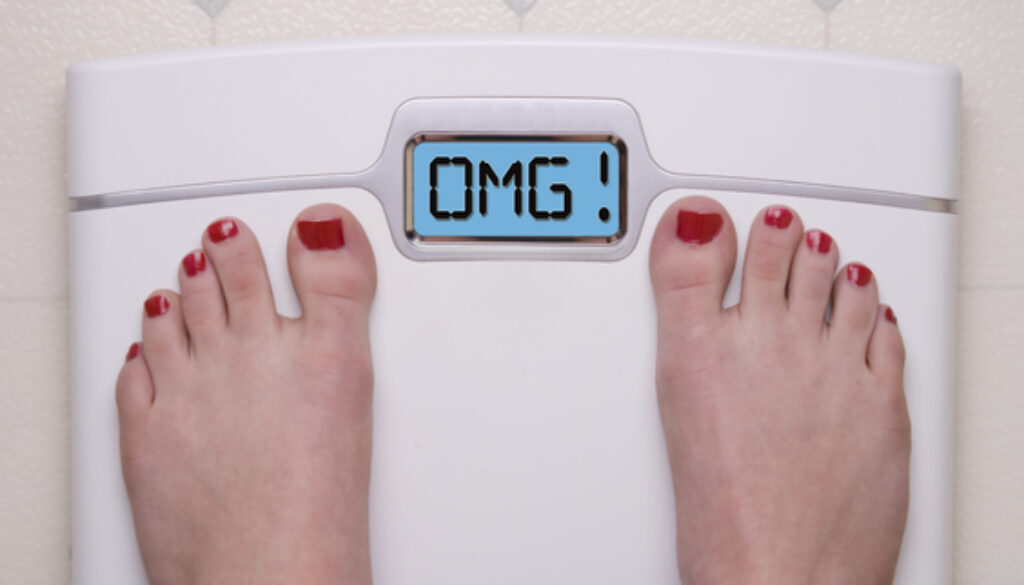Why Is It Harder for Women to Lose Weight?
A husband and wife decide they’re going to live a healthier lifestyle. They encourage and support each other by eating healthier and even joining a local gym. Each day, they workout together and do everything their internal medicine physician recommended.
At the end of three months, the husband has lost ten pounds. The wife, only five. Why are the results different when they followed the same routine.
Women have always believed it was easier for men to lose weight, and science supports this opinion.
Merely being a woman is a risk factor for obesity
According to a study in the Yale Journal of Biology and Medicine, merely being female doubles the chance of being overweight. American women are 3.3 percent more likely to be overweight and 3 percent more likely to be obese than their male counterparts.
If you think those numbers are upsetting, they get worse. The study also indicates:
- Women are more likely to die from weight-related diseases than men.
- In women, health-related problems occur at a lower BMI than men.
- Women are 6.6 times more likely to have a weight-related disease as compared to men.
The reasons why go far beyond diet and exercise issues, and focus on hormonal and structural differences between men and women.
Hormones are a major weight loss problem for women
Most people lose muscle mass and gain weight as they age. This change is not in the way your body uses calories, which can makes it difficult to lose weight. For women, there’s an extra challenge: menopause. Due to the decrease in estrogen, post-menopausal women are more likely to gain weight than men in the same age groups. Female hormones also store calories as fat, which takes up more space than lean muscle.
Metabolism
Men and women have different metabolisms. Thanks to greater lean muscle mass, men have a higher resting metabolic rate. You read that right. Because muscle burns more calories than fat, men burn more calories than women even when doing nothing.
As if that weren’t enough, women also store fat differently. For ladies, fat has an annoying tendency to gravitate to the thighs, hips and buttocks—areas where it’s more challenging to lose.
Emotion
It may be a cliché, but it’s actually true: Women tend to be more emotional eaters than men, according to a 2013 study published in the American Journal of Clinical Nutrition. Of course, the reasoning behind the study was much more complicated than simply reaching for a chocolate bar when stressed. Some of the findings included:
WOMEN TEND TO DIET MORE THAN MEN
While it’s a great idea to limit your calorie intake, the study theorizes that stress, emotions and other external cues reduce willpower. Former or current dieters actually have higher incidents of emotional eating than those who weren’t on diets.
Does this mean that women should scrap their nutritional plans? Of course not! It simply means that it’s a good idea to have a support network and be aware of any stressors that can lead to emotional eating.
EMOTIONAL EATING LEADS TO THE WRONG KIND OF FOODS
No one reaches for a tub of broccoli when depressed. Emotional eating lends itself to high-fat, sweet foods, cookies, cakes and chocolate.
IT’S A HARD HABIT TO BREAK
The study also suggested that emotional eating is “learned” behavior. This means the more often it’s done, the more likely it is to continue. Breaking this pattern can be as challenging as trying to stop other habits like smoking.
Strategies to help women lose weight
Sadly, there are no shortcuts or a magic pill that will automatically drop pounds. Diet and exercise have the longest-lasting results. Raleigh Medical Group offers the services of a licensed dietitian to help patients create, and stick to, a healthy diet plan.
Following are some useful tips:
- Avoid fad diets. They generally don’t work and often do more harm than good.
- Seek support. Find an exercise buddy or share healthy recipes with your friends.
- Make one change at a time. Trying to overhaul everything at once can be overwhelming and frustrating.
- Be wary of foods that sound healthy but aren’t. Energy bars and smoothies may seem like a great choice, but often they’re full of “hidden” sugars. Likewise, a healthy salad isn’t so healthy when it’s drenched in high-fat dressing.
Can women lose weight at the same rate as men?
Short answer: yes, though it will take more effort.
Trying to lose weight is frustrating. It’s all too easy to believe that the cards are stacked against you and give up. However, remember that there are many wonderful benefits to a healthier lifestyle even if they aren’t always reflected on the scale.
Our internal medicine physicians have worked with patients throughout the Triangle area by helping them reach and maintain a healthy weight. We know there is no “one size fits all” when it comes to reaching your health care goals, so contact us for a weight loss plan tailored to meet your needs.




